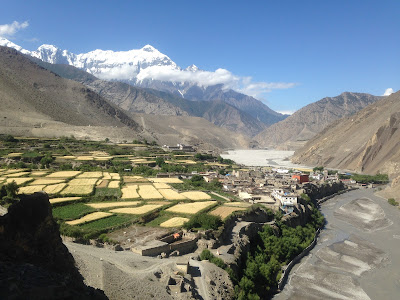The Constituent Assembly
The Constituent Assembly has finally been dissolved after four years in existence and a date has been set for the election of a new one. There is great public disappointment that the political process that started with the coming together of the Maoist party and non-Maoist parties in 2005 in New Delhi failed to deliver on its mandate. There are a number of areas that will require attention.
First, the failure has made it clear that leaders across party lines lack the ability to work together and reach compromise, even though they have been working together for over five years. They continued to hurl acrimonious statements and maintained hard-line positions to the very end and failed to prevent a major crisis. There is a danger here that Nepalis will harbour resentment towards fellow Nepalis with opposing political views and blame one another for blocking the constitution. This may be a cause of social conflict. Measures need to be taken to prevent this.
Second, the failure may lead to an upheaval within the Maoist party that will be damaging to the broader process. The Constituent Assembly has been on the Maoist agenda since 2005. Its dissolution means that disgruntled elements (Mohan Baidya faction never wanted ‘peace and constitution’) within it will try to change the party’s direction. There will be a great impetus to go for another mass uprising. The Maoist party as a whole may even get radicalised. It is to be hoped that this is contained and this does not lead to instability that Nepal can’t afford. Third, it is likely that positions will harden among the other parliamentary parties. The Nepali Congress and the UML will seek to gain the support of constituencies of Pahadis across the country, including in the contentious Far West and Eastern Tarai and will be unwilling to compromise with Madhesi demands for pan-Tarai states, as will be other right-of-centre parties. For their part, the Madhesi parties will try to raise public anger towards the older parliamentary parties; identity-based politics could harden further. Fourth, the failure of the CA gives the royalists an opportunity to raise a ruckus against measures that have been adopted over the past five years. They will question the legitimacy of other decisions that have been taken through the CA or the interim parliament and likely demand a referendum on secularism and the monarchy.
It is clear that our “transition” is set to continue for much longer than expected. It will have all of the problems seen during the past few years. The only thing that can be hoped for is that things do not get much worse. In order to prevent the negative scenarios outlined above, all parties need to introspect about their roles that last few years. If it is too much for them to ask to be flexible, they should at least be cognisant of the dangers that lie ahead and be able to come together to mitigate them.
First, the failure has made it clear that leaders across party lines lack the ability to work together and reach compromise, even though they have been working together for over five years. They continued to hurl acrimonious statements and maintained hard-line positions to the very end and failed to prevent a major crisis. There is a danger here that Nepalis will harbour resentment towards fellow Nepalis with opposing political views and blame one another for blocking the constitution. This may be a cause of social conflict. Measures need to be taken to prevent this.
Second, the failure may lead to an upheaval within the Maoist party that will be damaging to the broader process. The Constituent Assembly has been on the Maoist agenda since 2005. Its dissolution means that disgruntled elements (Mohan Baidya faction never wanted ‘peace and constitution’) within it will try to change the party’s direction. There will be a great impetus to go for another mass uprising. The Maoist party as a whole may even get radicalised. It is to be hoped that this is contained and this does not lead to instability that Nepal can’t afford. Third, it is likely that positions will harden among the other parliamentary parties. The Nepali Congress and the UML will seek to gain the support of constituencies of Pahadis across the country, including in the contentious Far West and Eastern Tarai and will be unwilling to compromise with Madhesi demands for pan-Tarai states, as will be other right-of-centre parties. For their part, the Madhesi parties will try to raise public anger towards the older parliamentary parties; identity-based politics could harden further. Fourth, the failure of the CA gives the royalists an opportunity to raise a ruckus against measures that have been adopted over the past five years. They will question the legitimacy of other decisions that have been taken through the CA or the interim parliament and likely demand a referendum on secularism and the monarchy.
It is clear that our “transition” is set to continue for much longer than expected. It will have all of the problems seen during the past few years. The only thing that can be hoped for is that things do not get much worse. In order to prevent the negative scenarios outlined above, all parties need to introspect about their roles that last few years. If it is too much for them to ask to be flexible, they should at least be cognisant of the dangers that lie ahead and be able to come together to mitigate them.



Comments
Post a Comment